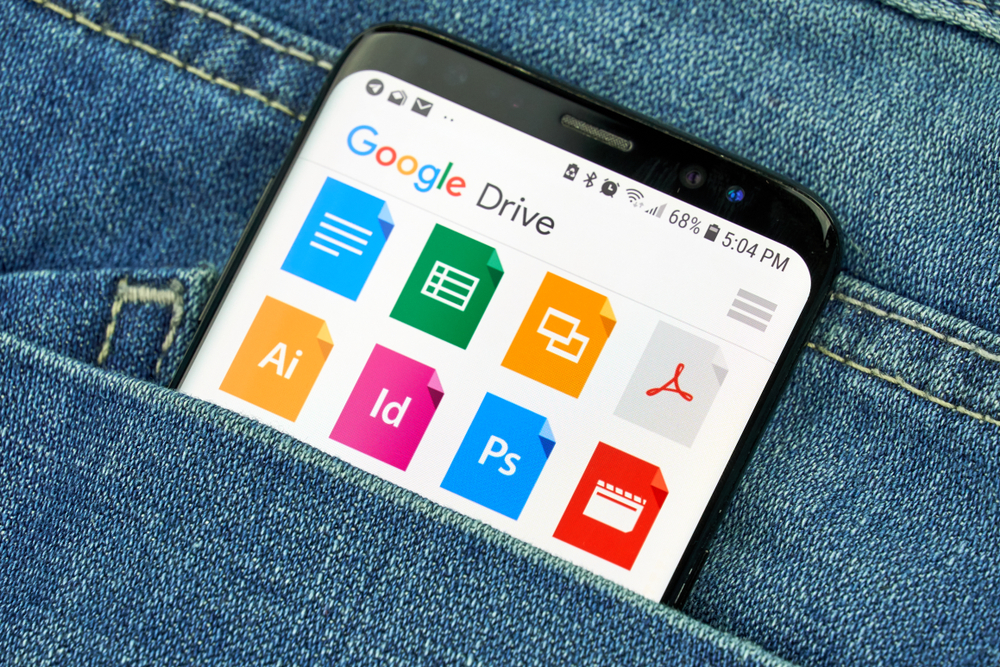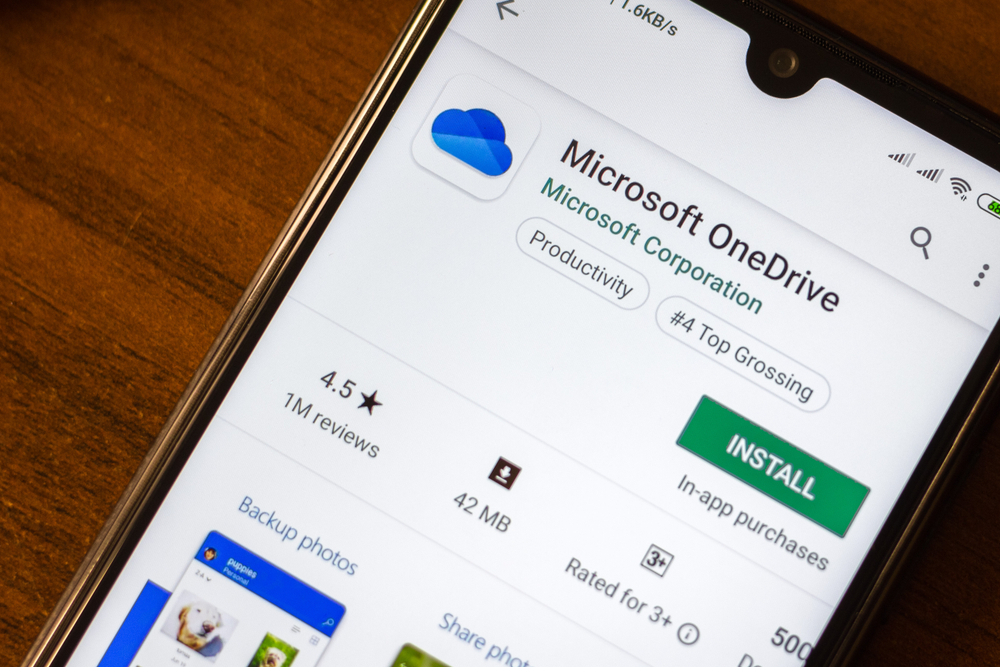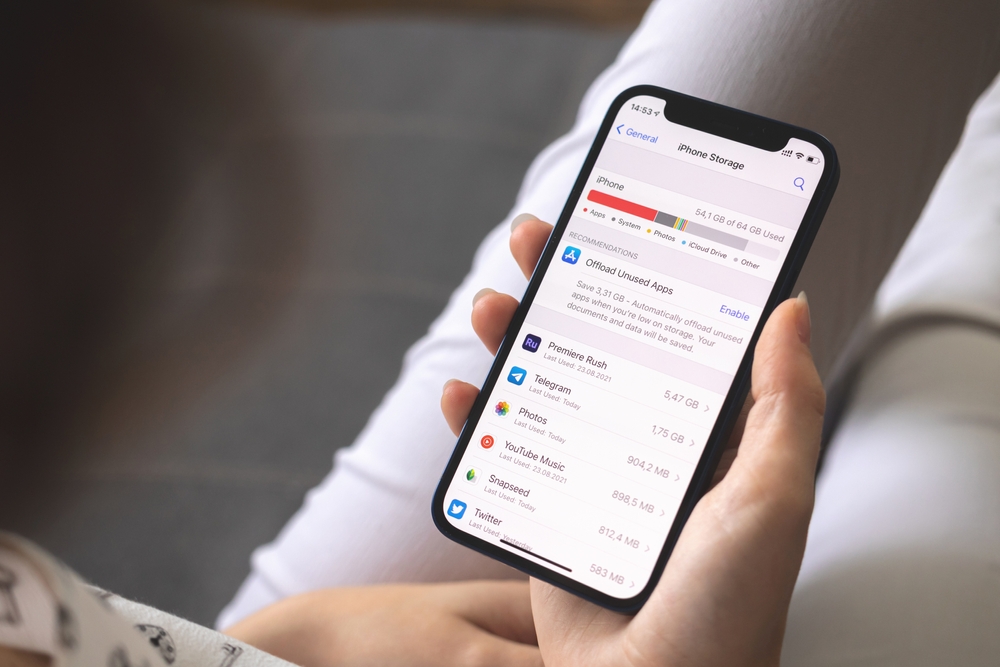Are there any good iCloud alternatives for iPhone users?
Even though Apple has been doing a pretty good job bringing iCloud to Windows, it’s still a solution that works best if you’re deeply rooted in the company’s ecosystem. There’s no doubt that it’s much better integrated on Mac.
Besides that, there’s no official way to use iCloud on an Android or Linux besides logging in with a browser. Then there’s the matter of the storage aspect of it. Apple only offers 5GB for free when you have an iCloud account, no matter how many devices you own.
Obviously, the company would be more than happy to give you more storage. But only for a reasonably competitively priced monthly fee. However, many iCloud alternatives for iPhone users offer more generous amounts of free storage, meeting consumer needs.
And some will even charge much less if you want to purchase more. So whether you want more manageable file sharing, more storage space, or cross-platform compatibility, iCloud alternatives for iPhone users DO exist. Here are our top 4 favorites!

Google Drive
Pros
- 15GB free: This space is shared across Gmail, Drive, and Google Photos, making it one of the best iCloud alternatives for iPhone users.
- File sharing and collaborative editing: Both account holders and non-holders can access and/or collaborate on files/folders in real-time. Also, you can find files you’ve shared not only by filename but also by the person you’ve shared them with.
- Built-in office suite: Includes tools for presentations, writing, and spreadsheets.
Cons
- No official client for Linux: Google isn’t a client for Linux, leaving many people who use the service compelled to use third-party apps or the webpage.
- Due to the terms and conditions, Google owns anything on this platform: They can create derivative works, perform them, modify them, and they can publish them at will. There are many other specific rights they have over your product. So read the terms carefully and compare them with ANY others.
- Data privacy isn’t guaranteed: Any data that’s shared through Google is likely matched up with the user’s profile inside other Alphabet Inc. subsidiaries. And because of the business model used commercially.
Google Drive is one of the best iCloud alternatives for iPhone users because it currently offers the most storage space for free. So you can still use it if you’re looking for a lot of cloud storage and don’t have Microsoft OneDrive or Amazon Prime.
It also has a great iPhone app that makes it straightforward to back up your content. Included in Google Drive is a dedicated photos app, and you can automatically back up your photos. You can also color-code Google Drive files for effortless organization.
It’s free with a Gmail account. So you might already have access to it and not be aware of it. The automated backups and high amount of free storage make Google Drive the best competitor to iCloud Drive.

Microsoft OneDrive
Pros
- Integrates with Microsoft Office software: It merges with Excel, Word, and PowerPoint as if you were using OneDrive.
- Easily share files and folders: You can choose what folders and files to share with other people and then simply send them a link.
- No setup for Windows 8 or 10: If you use Windows 8 or any later version, OneDrive is already built into your system and can be accessed through file explorer.
Cons
- You won’t find old versions and deleted files online: On some other services, you can see previous versions and deleted files for a period. But with this option, these are only available on the PC where the edit was made. So if someone with written permission on your shared folder deletes your things, you have to ask them to go in their recycle bin, making it less useful for teams.
- Online OneDrive is slow: Compared to other storage options, the web interface of Onedrive is slow. It has a slight delay on every action, including opening or deleting a folder.
- No client for Linux: They’re not clients for Linux. So, this might not be one of the most suitable iCloud alternatives for iPhone users if this is a concern.
OneDrive is as effortlessly integrated into Windows 11 as iCloud is into macOS, while the OneDrive app for iPhone ties into the built-in Apple Files app to make it one of the best iCloud alternatives for iPhone users to access files on the go.
It can also automatically back up your images to the cloud for easy access through the Windows Photos app on your PC. It offers the same 5GB free storage allowance as iCloud. But this jumps to 1TB if you opt for a Microsoft 365 subscription.
It’s not a hard sell because it only costs a few bucks a month and includes Microsoft’s entire suite of Office applications.
Even better, you can get a Microsoft 365 family plan for up to six people for as little as $10 per month, and each individual receives their own 1 TB OneDrive storage.
Dropbox
Pros
- Easy to use: You can use Dropbox on your PC AND phone by simply installing a desktop client that creates a folder where you simply drag and drop files into. Everything synchronizes across all your devices and cloud storage. And Dropbox offers easy methods of sharing with others.
- Cross-platform mobile and desktop: Dropbox is available on iOS, BlackBerry, Android, Windows, OS X, and Linux. By having a client for so many OSs, anyone is pretty much covered, no matter what kind of device or OS they’re using. Personally, this is one of our favorite iCloud alternatives for iPhone users.
Cons
- Not secure: They don’t use end-to-end encryption, and files are visible to governments, admins, etc.
- Not enough free space: There is just too little free space available compared to the competition.
- No privacy: Vast collecting and distribution of user data to commercial third parties.
Dropbox was one of the first primary cloud storage services to appear on the scene. The company was founded just months after Steve Jobs unveiled the original iPhone and has been on the App Store since 2009.
It remains one of the most popular iCloud alternatives for iPhone users, with over 700 million registered users. In addition to iPhone and iPad, it offers client apps for Mac, Windows, Linux, and Android. So you can sync and access files from almost any device you have.
Of course, you can also connect to Dropbox to access and view your files from any modern web browser and easily share files securely with other Dropbox users or anyone else using private links.
The iPhone and iPad app can also back up photos in your photo library automatically, storing them in a simple structure that you can easily access from your PC without any additional software. The mobile app even includes a built-in document scanner.

Box
Pros
- Cross-platform mobile and desktop: Box is available for Windows, iOS, BlackBerry, Android, OS X, and Windows Phones. Which means access to your files no matter the device or platform you use.
- LOTS of Data in the free plan: Its free plan comes with 10 GB!
- Privacy and sharing features built for business and IT users: This includes task assignments, advanced sharing options, and notifications. Making it an easy way to stay up to date on assigned tasks.
Cons
- Log in every time: Any time the app is opened, the user must type in their log-in, which can become irritating. While it’s a nice privacy feature, an option to turn it off would be lovely.
- Missing collaborative apps: Not being able to back up files easily can be a setback when compared to backup apps like Drive. Even though you can set up certain apps to save your files to the Box folder, it’s not as straightforward as using something like Google Docs, which saves while you’re working.
- Not a Linux client: They’re not willing to listen to the Linux community. They’ve also been known to delete messages from Linux users on their forums.
The Box is an affordable storage platform that has been around for more than 15 years. With its many loyal customers, it has proven to be one of the top iCloud alternatives for iPhone users out there. The Box gives you 10GB free, to begin with.
But if you want to upgrade, you CAN for a reasonable price. For $7 per month, you get 100GB of storage plus the ability to add different users. Not only does The Box help you secure your files, but it also helps you complete tasks.
It has an inbox where you can get notifications on projects to collaborate. And it allows you to create and delegate tasks to others.
At the end of the day, if you feel as though you ABSOLUTELY need more storage space, we highly recommend grabbing this practical External Hard Drive from Amazon!
We hope you found this article on iCloud alternatives for iPhone users helpful. In the meantime, we also recommend reading: Upgrade Your Life Quality With These 7 New Amazon Alexa Features














